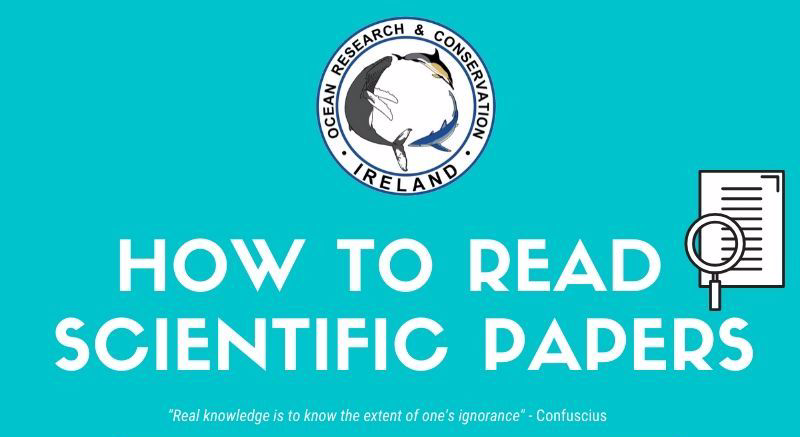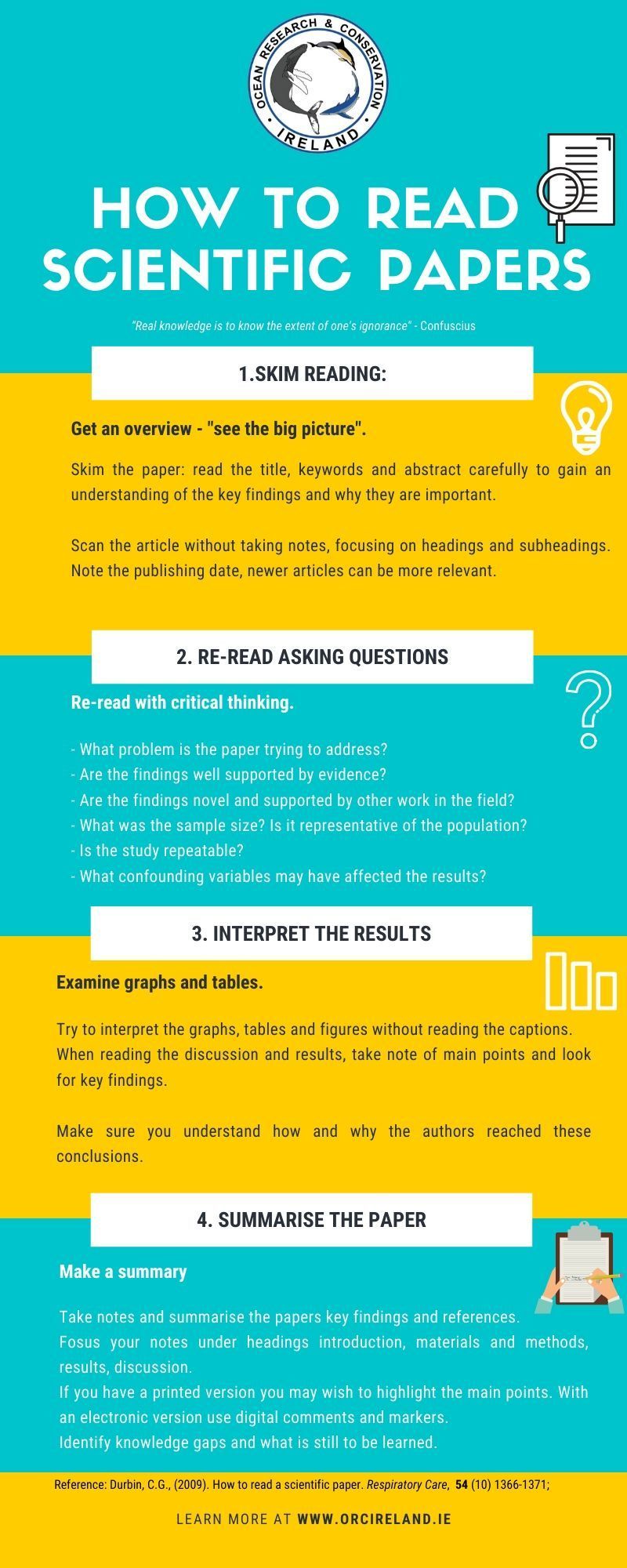Marine Biology Top Tips; How to Read a Scientific Paper.
So you want to be a marine biologist when you grow up, but did you know that much of a scientists job is reading scientific publications? O.R.C.'s Youth Ambassador Martyna explains how she learned to read a scientific paper and gives some top tips so science can be accessible to everyone. Here she also summarises a paper which describes a major issue to marine wildlife across the globe...bycatch of non-target species in fisheries. "Dive in" and learn how you can better understand scientific publications.
The most common way adults acquire knew knowledge and learn is through reading (Durbin, 2009). To form a truly educated opinion on a scientific subject, you must become familiar with current research in that field. Reading research papers can also help with personal growth and can be very rewarding. In order to be able to distinguish between good and bad interpretations of research, you must be willing and able to read the primary research literature. Reading and understanding scientific publications is a skill that every single scientist has had to learn during their studies but is a skill that is useful for the general public also. You can learn it too, but like any skill "practice makes perfect".
A lot of a scientist’s work involves reading orginal scientific articles, to stay up to date in their field and to advance their scientific understanding, review manuscripts, or gather information for a project proposal or grant application. Scientific articles are different from other texts, such as novels or newspaper stories, and so should be read differently.The sections of a scientific paper are read in a different order than they are presented, but you also have to take notes, read it multiple times, and look into the reference lists in more details.
Scientific papers follow the IMRD format — an abstract followed by the I ntroduction, M ethods, R esults and D iscussion. They also have multiple cross references, tables and figures, in addition to supplementary material, such as data sets, lab protocols and gene sequences. All of these features can make them dense and complex. Being able to effectively understanding them is a matter of following a different procedure and plenty of reading of other related articles to better understand the context.
See Martyna's summary of the paper she refers to in this video here:
Features of a scientific article:
- Title
- Abstract- a brief summary of a research article
- Introduction
- Figures/ Results
- Conclusion/ Summary
- Method
- Discussion
Reading a scientific paper should be done strategically and with a critical mindset, questioning your understanding and the findings as you go.
SHARE THIS ARTICLE















